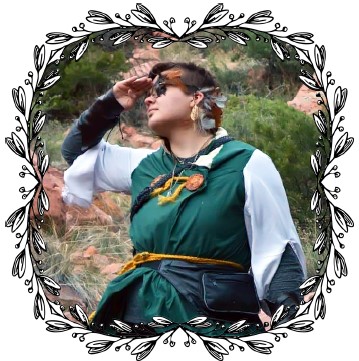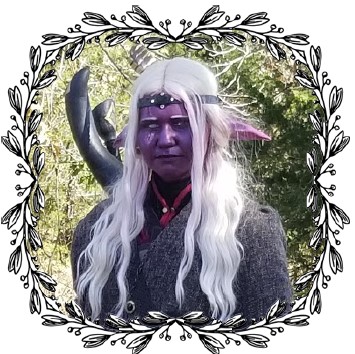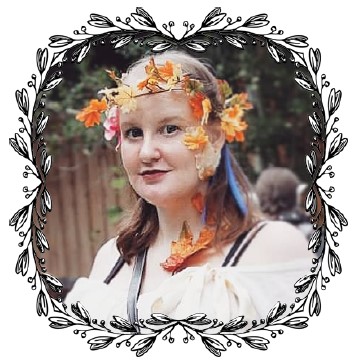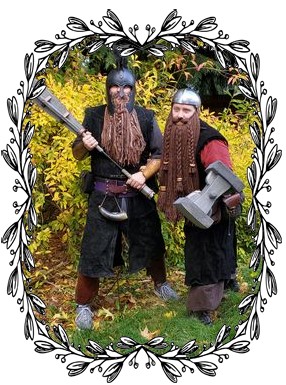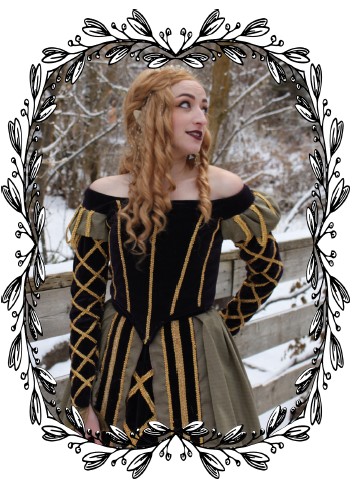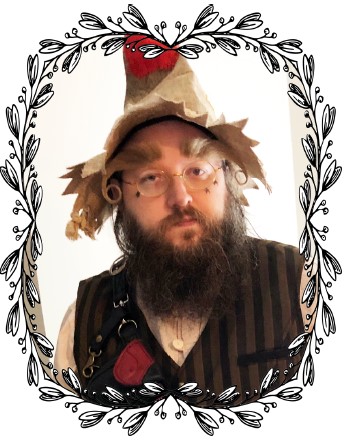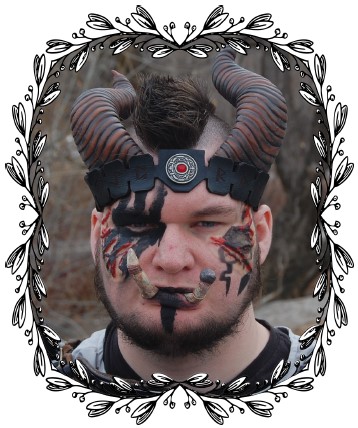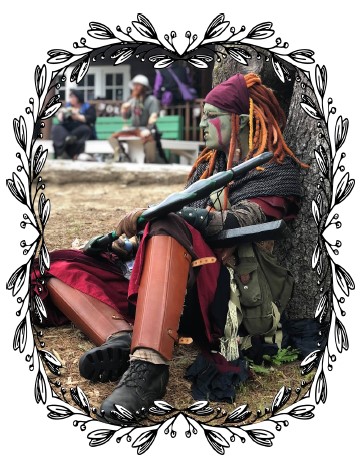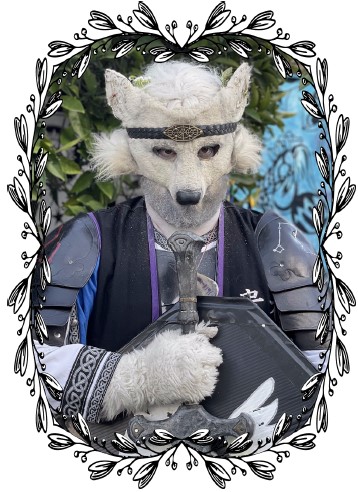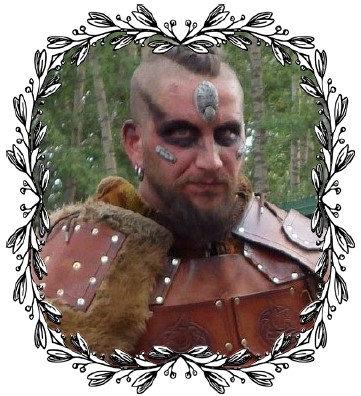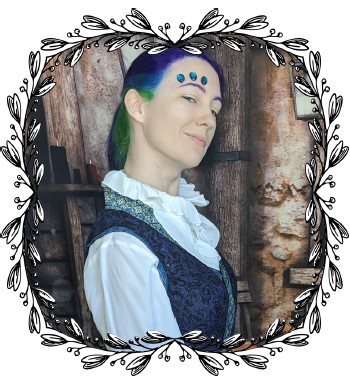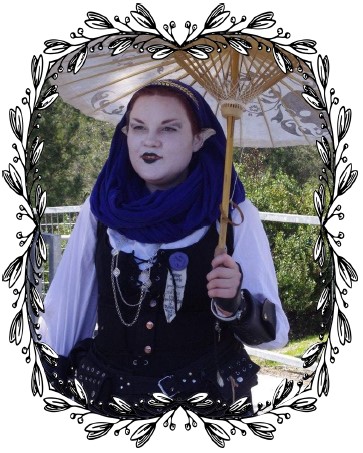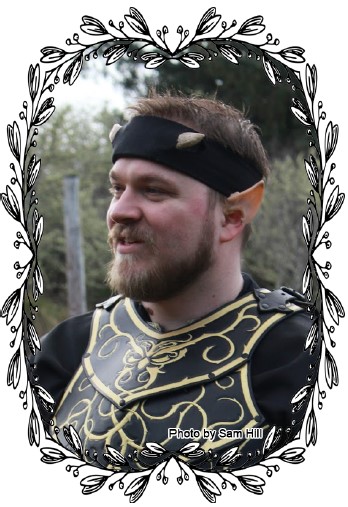Below are short summaries about the different species that exist within the Realms of Refuge. Full Species Packets (with the exception of Humans) are available by clicking their picture.
Avani
Avani were originally created by gryphons from the birds that dwelled in their mountainous homes. The connection Avanian societies maintain to gryphons varies wildly, but their history does tend to result in Avani who are highly motivated and have strong convictions. Individual Avani also can form strong bonds with gryphons, called pacts, that can have both positive and negative consequences.
Like their progenitors, Avani have the innate ability to interact with minds and mental landscapes. Their power in this area largely centres around memory, and their ability to view, protect, and alter it. This intimate relationship with memory gives them a unique perspective on its inherent weakness and value. Many Avanian cultures place emphasis on the role memory plays in the creation of the self, and the idea of immortality through the preservation of memory.
Avani can store memories in special items called Lodestones. Almost all Avani have at least one personal Lodestone that they store their own experiences in, so that in the event of their permanent death their memories will live on within it. Avanian communities typically form around a similar but more powerful item called a Homestone where these records are collected and preserved.
Dark Elves
To surface-dwellers, Dark Elves often seem cold and standoffish. This is due to their high expectations of personal conduct, both for themselves and others. This is not to say that Dark Elves never laugh or cry, but they are expected to keep excessive emotions in check. Additionally, their sense of humor may be darker than others.
Dark Elves place a high value on personal integrity. While they can lie, it is almost always to a greater purpose. Due to their mistrust of the more “carefree” people of the surface, Dark Elves tend to gravitate toward and place greater trust in those with similar values. While Dark Elves do have a sense of self-preservation, they are generally taught not to show fear or hesitation in the face of adversity. Therefore, they are often inclined to meet difficult, and even life-threatening, challenges head on. Dark Elven culture places a high value on the valor of such deeds, but this belief does often cost Dark Elves their lives.
Law and personal accountability are of the utmost importance to Dark Elf society — the law is the law, and those who violate it should anticipate harsh punishments. Similarly, those who uphold the law are held to the most stringent of standards. Therefore, they are worthy of the utmost respect, so long as they maintain their integrity.
Dryads
While there is some debate over what type of ecosystem the "great forest" actually is, the general consensus is that Dryads watched over the First Realm until it was time for them to take their rest and pass over stewardship. When they woke from their Great Sleep, memories of their culture had become buried deep within the recesses of their minds. Many have woken to a quite different Realm from what they knew and are curious to know what the Realms have become
These curious, gentle folks are not actual plants but mortal creatures of flesh and blood with an extremely diverse background. Their physiology is as broad as all the flora and fungi that exist in the natural world. Dryads also come from many varied regions. For example, you may find Dryads living in swampy mires, arid deserts, and deeply forested regions.
They are an egalitarian folk that tend to cluster together in communities. If asked where they are from, it is not unusual to hear a newly woken Dryads to refer to their community as their Home Forest. They consider one another Kith and Kin, (often referring to one another as siblings, cousin, etc) and live in remarkable balance with each other.
Dwarves
Dwarves are a tough, resilient and proud species that often live in mountainous regions but can be found in a variety of climates. In the Realms of Refuge "Dwarf" does not mean small nor short. They commonly live in vast cities built with precision and adorned with elaborate carvings and the finest metal work. The most recognizable trait of a Dwarf is a glorious beard and/or braids. These are very well-groomed and generally adorned with jewelry or personal accessories, these features are a major part of their culture and a source of great pride for the species.
Dwarves are fierce warriors and rarely back down from challenges, either physical, social, verbal, or abstract. As a long-lived species, they also tend toward a “slow and steady wins the race” attitude. Dwarven attention to detail borders on obsession and in combination with their other traits, this often leads to lively conversations even among their family and allies. Yet, when it comes to war, they are quick and decisive. Glory in battle, especially when that battle is defending their own species, is a battle worth fighting to win. A Dwarf will go out of their way to help their own, and this is extended to include those to which they've bestowed the title of friend. Truehearted, noble, and unrelenting in battle, when someone manages to truly befriend a Dwarf, they will have a fiercely loyal comrade for life.
Dwarves take great pride in the various things they create, and those creations are not limited to smithing. From weapons and armor, to towering statues, down to the most delicate of jewelry, even their cuisines and ale they make has the same passion poured into it. Dwarven artisanship is held in the highest regard by most, prized throughout the Realms of Refuge; the byword for quality is craftdwarfship. Be warned, considering the time and meticulous attention to detail that goes into everything they make, Dwarves are not amused by unwarranted and hasty criticism.
Elves
If other long-lived species are stones in the river of time, steadfast against the torrents of change, then Elves are fish. They exist within the movements and flows of their world--they understand them, are molded by them,--and live in harmony. Because of that, they have made their way into every corner of the realms they inhabit, displaying an incredible fluidity of physiology, culture, and temperament.
Elves understand that there is always, always more time, and even the most awful tragedies or grand triumphs will pass and fade away. This tendency can make them appear unempathetic to the day-to-day hardships of life-- even aloof, passive aggressive, or at worst, elitist. While many elves feel most comfortable forging lasting bonds with others who share their lifespan, each individual elf creates their own perspective on the shorter-lived species. Many young elves are filled with an unquenchable wanderlust and strike out into the world that they’ve heard lovingly described by their elders. Some never settle down, and spend mortal lifetimes seeking adventure on the ever-elusive edge of the unknown.
While Elven societies exist in every variation of structure and style, they demonstrate obvious commonalities. Their stewardship over their land results in architecture where engineering and natural features exist in perfect union. Natural resources are cared for and maintained vigilantly, making them profitable trade-partners to other societies, or perhaps rich targets for conquest. Being so attuned with the land, sea, and stars, Elven cultures are prone to observe and celebrate occasions of natural beauty and Celestial occurrences whenever possible.
Halflings
Halflings are peaceful people. Primary among all other considerations, Halflings love comfort. They enjoy a pleasant home, a warm fireplace, good food, fancy clothing, fine wine, and excellent distractions. Halflings love a good story, play, book, or bard, and will actively seek out entertainment when it is available. The art of storytelling in all its forms is highly valued, so much so that those who take up trade as a bard or author are highly revered in Halfling society. As such, both oral and written history are extremely important to a Halfling. A Halfling dedicated to chronicling histories sticks with the facts. But if the focus is storytelling, then why let facts get in the way?
Halflings greatly value wares and goods and love a good bargain or deal. They would never deign to offer an insulting price on someone's work. Craft and method are highly valued, as are the people who produce truly remarkable wares. As Halflings are known to be shrewd and talented in business, they are a boon to any industry they set themselves to. Their appreciation of quality and skill in dealing with others is truly unparalleled. Yet, most Halflings are often willing to pay more for an item of significance, if the story is impressive enough.
Reputation among fellow Halflings is extremely important, as it is essential to keeping a peaceful and comfortable life. Among other species, however, a Halfling does not necessarily place their reputation in such high concern. Seldom does a Halfling do something without considering the impact to his or her reputation, but it is important to keep in mind that sometimes reputation and action are quite different things.
Ogres
Ogres have a heightened metabolism leading them to operate at a level of intensity that absolutely befuddles longer-lived species. Due to this, when bored they tend to find something to do, whether it is work, fighting, or some other rigorous activity. They have one of the shortest lifespans of the adventuring species, reaching maturity in one year, with an average lifespan of twenty years, though some do manage to live into their late thirties.
One thing holds true despite any differences between Ogre communities, necromancy and the undead are fundamentally wrong and must be stopped. In fact, many other species use this inherent link between Ogres, the land, and the wrongness they feel towards necromancy as proof that undeath does in fact harm the very land itself, beyond the usual power-mad-lich-trying-to-take-over problems.
Ogres in other communities tend to try and find some way to make their active nature work for them, and i t’s a foolish person i ndeed who doesn’t take them up on their offer to work. The only issue is that if the work isn’t engaging enough they can get sidetracked, and particularly officious societies don’t handle the freelancing of such Ogres particularly well.
Orcs
Orcs have shorter lifespans than a human, reaching maturity in two years, with an average lifespan of thirty years, though some do manage to live into their late forties. No less intelligent than any of the other sapient species, their short lifespan means that they tend to be more focused on the immediate, rather than the long term. While an elf might see a plan that takes twenty years to come to fruition as reasonable, to an Orc that’s essentially a lifelong commitment.
This has led to a situation where Orcs seem crude or overly Blunt to these longer-lived species. This doesn't generally concern a Orc much, if whatever needs doing gets done. It also means that not much stock is placed in being concerned with grudges, others or their own. If someone attacks you, put them down. If someone insults you, right the wrong, then get on with life. It is better to sit down with friends, food, and song than to simmer with unexpressed anger, or work some political angle.
Due to this, primarily Orcish communities tend to be a strange mix of volatile and stable. On any given day, two Orcs might be bellowing at each other as a way to work out a disagreement in the morning, and in the evening both are clapping each other on the back for work well done, the previous conflict having reached a conclusion one way or another. This letting go of the past and future to focus on the now makes treaties and the like very difficult for other species when dealing with Orcs, to which most Orcs shrug and just get on with whatever they decide needs doing at that point. As such they tend towards the most direct approach possible when solving problems. They're no less capable of intricate plans than anyone else but tend to prefer solving the immediate problem as efficiently as possible.
Human
Across the Realms of Refuge, no species is so numerous or ubiquitous as humanity. No single creed or goal unifies their disparate civilizations, not even the concept of civilization itself, or what such a thing should look like.
Their brief, flaring lives have led them to become masters of adaptability and resilience, and humans can be found to live - and even thrive - in the most inhospitable of climes: from scorching deserts to freezing glaciers, sweltering jungles, even deep underground in lightless caverns, or in bug-infested swamps. Humanity has mastered them all. Some communities are nomadic, and some cities have been settled for thousands of years unbroken, becoming true bastions of civilization and enlightenment.
This adaptability has developed in humanity an incredible capacity for imagination and ingenuity. Where other species are capable of almost instinctive feats of magical or warrior prowess, humans have had to rely upon their wits and problem-solving abilities to survive the frequently perilous Realms. It is a matter of pride (for humans) and consternation (for other, older species) that human beings are often capable of developing skills in just about any field comparable to the greatest masters of any other people. Rhetoric, warfare, commerce, even the higher arts of magic have all been mastered by humanity at one point or another - with successive generations raising the bar of mastery repeatedly.
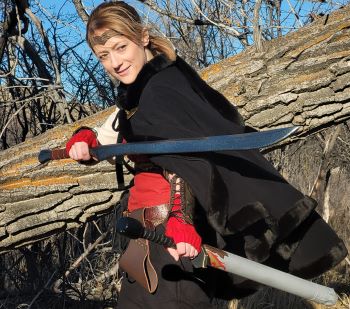
Kyn
Kyn are seen throughout the Realms. From a simple Foxkyn baker, to a ferocious Bearkyn who lives in the wilds. Their culture is as diverse as the subspecies that make up Kyn. Some live remotely in the wilds while others grow up in massive cities. A Wolfkyn may feel they want to howl at a full moon. In the wilds this may happen, but a city dwelling Wolfkyn mage may take a moment to gaze out the window on their busy day rather than howl.
Societies often reflect their animal roots. Many Dolphinkyn travel in packs and work together to complete their goals. A lounge of Lizardkyn may spend their time in the warm months outdoors soaking up the heat from the sun while going about daily tasks, or even basking on a rock for a quick break.
Having animal roots means it takes a little more focus to become educated. This does not mean they are incapable of magic or bookkeeping. Many have become accomplished healers or High Magic wielders. Some are greatly skilled in the trades, like fishing, carpentry, and baking. A more gregarious Kyn may work as a tavern keeper, painter, or a performing artist - or positions where they can be among a constant flow of other individuals.
All Kyn are based on a real-world animal. No fictional creatures such as gryphons or dragons are allowed as Kyn. There are also no cross breeds unless it happens in nature such as a Ligerkyn.
Realmsworn
The Realmsworn are a pragmatic and stoic species defined by their unyielding commitment to duty. They are collectively united by the Primal Vow, a shared burden among Realmsworn to protect the Realms of Refuge from outside threats. Through the Primal Vow they share a deep connection with the land that manifests as the rocky or bony protrusions seen on the faces of Realmsworn.
The taking of any vow is a solemn act for Realmsworn that requires significant deliberation. Once taken, the vow becomes a part of who they are. Realmsworn take immense pride in the vows they have taken and display this by prominently wearing a Var, on their clothing for all to see.
All Realmsworn believe service creates strength. Through serving a cause greater than themselves, they reach their full potential and help those around them reach theirs. They are pillars of strength in the community or on the battlefield. Realmsworn recognize that bearing great burdens and honoring their vows deepens their connection to the Realm and develops the strength they need to protect it. Realmsworn bear an inherent aversion for any creature not native to the Realms of Refuge (such as Elementals or Extraplanar). The extent to which this manifest varies but many Realmsworn are eager to purge the Realms of outside influence.
Stellarean
To be a Stellarean is to be a member of a species of fallen stars. With this unique heritage comes an extraordinary birthright. Every Stellarean is connected to every other member of their species via a deep and subtle empathic bond. This means when two Stellarean meet for the first time, they are much more likely to get on well with each other, and most Stellarean bond more quickly and strongly with others of their own species. Not to say that the species is unable to harbor great and intense emotions towards members of other species; not every Star in the sky is part of a constellation. In fact, it has been said that a Stellarean can even form a bond with a non-Stellarean so strong, that something very like their species-wide empathic link is forged between them.
Stellarean have a natural curiosity for the world around them. Due to their celestial heritage, everything about the world feels just a bit alien to them. This causes them to be drawn to meet new people, experience new things and travel to new places. Some find this need insatiable, causing them to wander far and wide, while others find they can satisfy it within their chosen community.
While the feel of being around other Stellarean is appealing to some, that empathic link can also become overwhelming. Some take to wandering alone or in groups of other species to clear their heads. But that pull to another Star is not insignificant and can sometimes contribute to the wanderlust a Stellarean feels, pushing some eventually to search for their own species once more.
Stone Elves
Legends say that long ago a group of Dark Elves were changed by a Celestial magic backlash into the stoic Stone Elves of today, removed from the reckless emotions that once brought them ruin. Stone Elves show nearly no emotion and have the appearance of being eternally calm. Their discipline and their mental strength enable them to suppress outward emotional expression. Most spend a lifetime seeking to be rid of inner turmoil as well and proximity to others’ emotional expressions can be uncomfortable. Some claim that this discomfort is due to Stone Elves feeling physical pain when exposed to strong emotion, though Stone Elves themselves are typically quite reticent to discuss such matters.
Stone Elves live many centuries, and as such they have a different view on matters than Humans and other short-lived species. Pragmatism is easier to learn for them, as it is a common belief that most conflicts resolve themselves with time.
While the specifics of Stone Elf societies may differ, they are always based upon a carefully reasoned format. Most Stone Elves have the goal of productively contributing to their communities. It is common for any Stone Elf community of significant size to arrange itself into subsets such as houses or research conclaves led by elders, which can manage parts of the community rather than every issue requiring the attention of every member.
Stone Elves' thirst for knowledge can take them all over the Realms. These quests often last for decades or even centuries and are frequently regarded as a rite of passage for young Stone Elves.
Syladrin
The Syladrin are descended from the Fae, their closest cousins being satyrs and fauns. They are truly a communal society believing “it takes a village” to accomplish most tasks, from defeating a vile foe to raising children. As such they have a strange idea of personal possession compared to other species, finding little reason to hoard wealth when it can be spent for the betterment of the community; be that in arms and equipment or throwing a lavish party to raise everyone’s spirits.
The Syladrin hold the ideal of personal freedom in high esteem and are reticent to take away that freedom from any sentient beings without due reason. They abhor Command magics, though the strength of their revulsion is different from person-to-person and community-to-community. Their respect for personal freedom is so strong that their wills are notoriously hard to break.
Syladrin cannot help but tinker and l earn about the world around them, either dabbling a little in a lot of subjects or becoming experts in their fields.
Syladrin have no known maximum age, instead dying from other causes such as accidents, disease, or war.
